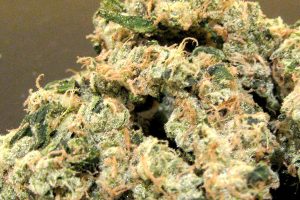The Environmental Impact of CBD Oil UK Production: Sustainable Practices and Choices

Introduction: Recognizing the Environmental Footprint of CBD Oil UK
As the demand for CBD Oil UK continues to rise, it’s crucial to acknowledge the environmental impact of its production. From agricultural practices to extraction methods, every step of the CBD manufacturing process has implications for the planet. This article explores the environmental footprint of CBD Oil UK production and highlights sustainable practices and choices that can minimize its impact on the environment.
Sustainable Agriculture: Cultivating CBD with Care
The cultivation of cannabis for CBD Oil UK production has the potential to strain natural resources and contribute to environmental degradation if not managed responsibly. Sustainable agricultural practices, such as organic farming, regenerative agriculture, and permaculture, prioritize soil health, biodiversity, and water conservation. By embracing these practices, CBD producers can minimize their environmental footprint and promote ecosystem resilience.
Soil Health: Nurturing the Foundation of Sustainable Farming
Healthy soil is the cornerstone of sustainable agriculture, playing a vital role in nutrient cycling, water retention, and carbon sequestration. CBD producers can support soil health by avoiding the use of synthetic fertilizers, pesticides, and herbicides that can degrade soil quality and harm beneficial microorganisms. Instead, they can implement crop rotation, cover cropping, and composting to enhance soil fertility and structure, fostering a thriving ecosystem beneath the surface.
Water Conservation: Preserving a Precious Resource
Water scarcity is a pressing concern in many regions around the world, making responsible water management essential for CBD producers. By implementing drip irrigation, rainwater harvesting, and water-efficient irrigation techniques, CBD farmers can minimize water usage and reduce their reliance on finite water resources. Additionally, choosing drought-resistant cannabis varieties and optimizing planting schedules can help mitigate the impact of water scarcity on crop yields.
Energy Efficiency: Minimizing Carbon Footprint
The energy-intensive nature of CBD Oil UK extraction poses challenges in terms of carbon emissions and energy consumption. However, CBD producers can mitigate their carbon footprint by adopting energy-efficient extraction methods, such as supercritical CO2 extraction or ethanol extraction, which require less energy and produce fewer greenhouse gas emissions than traditional solvent-based methods. Additionally, investing in renewable energy sources, such as solar or wind power, can further reduce the environmental impact of CBD production facilities.
Conclusion: Embracing Sustainability in the CBD Industry
As the CBD industry continues to grow, it’s imperative for producers to prioritize sustainability and environmental stewardship. By embracing sustainable agricultural practices, conserving water resources, optimizing energy efficiency, and minimizing waste, CBD producers can minimize their environmental footprint and contribute to a healthier planet for future generations. By making conscious choices and investing in sustainable solutions, the CBD industry can lead the way towards a more environmentally responsible future.






